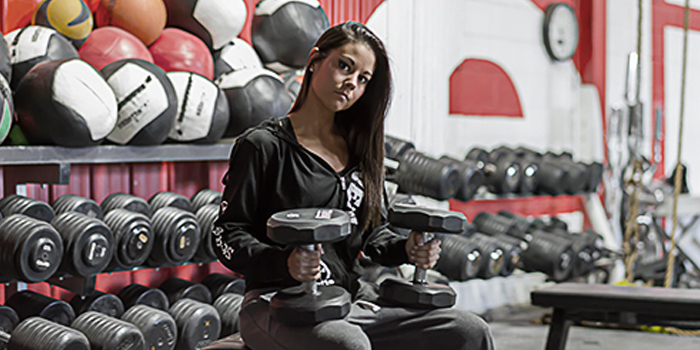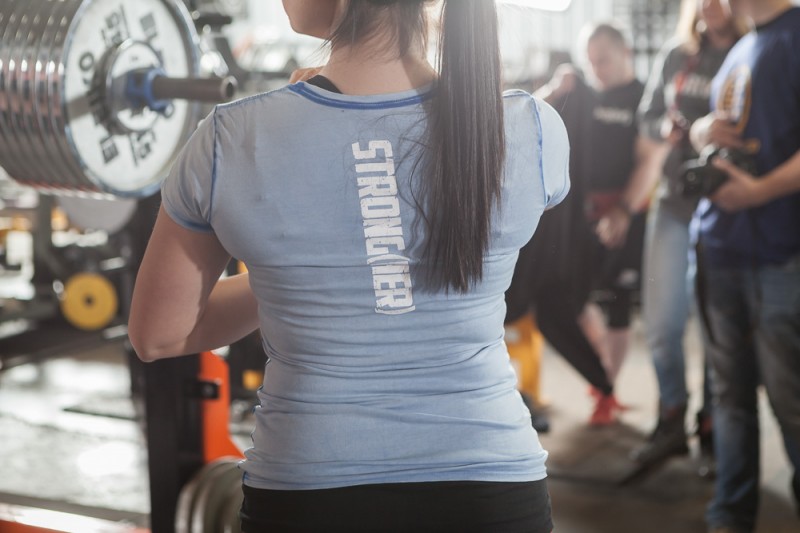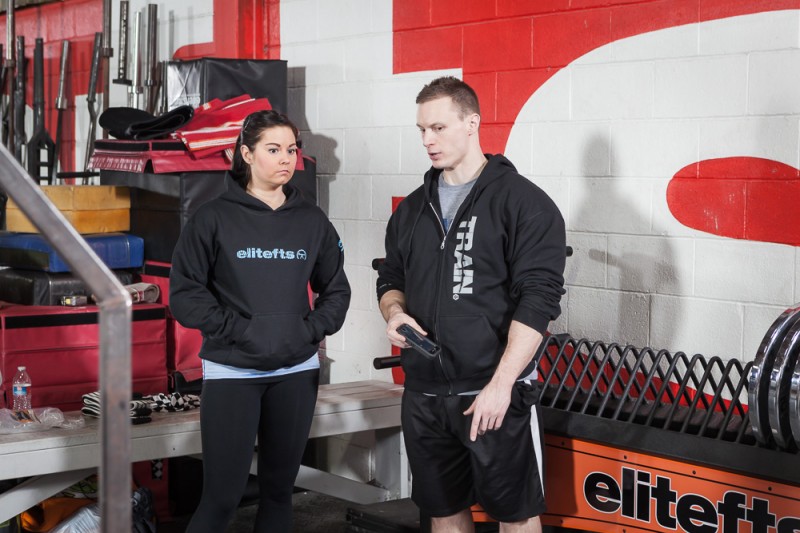
The contest prep post-show experience can be a tough one to navigate, especially when it goes epically wrong. In part two of this article series, I am going to discuss the top three nutrition and training mistakes I see when competitors reverse out of a show, how they may affect long-term progress, and what to do if you make them. I will discuss nutrition in more detail within this series because I do believe that portion gets screwed up way more than the training side of things.
Nutrition
Mistake #1: Binge Pattern Development
Some competitors may come off post-show with a plan and nutrition structure only to deviate frequently with very large meals or junk food randomly. Developing binge pattern behavior after a show is unfortunately common and can occur due to a number of variables. A competitor’s prep may have been too restrictive or depleting. We need to remember that we have a strong mind-body connection even if we are not consciously aware of it. If you have been pushing through a very restrictive and calorically low diet, when you come off the show and eat “normal” meals for the first time, it can really be a shock to your body.
Some competitors may have the sensation where they never feel full even when they start eating more calories, or have constant cravings. Again, going back to the first article in this series, your body does not desire to be shredded. It desires to keep you alive. When you eat large meals excessively following a state of depletion your brain is basically saying, “Finally, food!” And since your mind-body connection doesn’t know when your next meal will be post-depletion, you crave more food instinctively. As a result, you can put on fat mass very rapidly and could potentially have blood sugar issues.
RECENT: Contest Prep Aftermath: Reverse Dieting and Training
There are a few ways to avoid developing binge pattern behaviors after competing. First, be aware of your energy intake and expenditure as you prep for your show. Your coach should be very transparent with your macronutrient and calorie numbers. If they are not, hire a different coach.
Pay attention to what is going on. How do you feel? Did your macros/calories slowly progress down or did you eat 1,100 calories for 16 weeks straight? Again, hire a different coach if that’s the case. The more drastic or depleting your prep is, the more conservative you have to be coming off of it. If you progressed extremely slowly and in an intelligent manner, chances are you can have normal meals fairly regularly and be fine. If not, you will need to be patient and include normal meals minimally, at least in the beginning. Be smart, and pay attention.
Second, have a structured off-season base plan, but also plan some off-meals in there. If you plan ahead, such as going out to dinner with friends or traveling, you can look forward to those times to relax and again, it won’t be a guessing game or free-for-all.
"Shit! I made this mistake. Now what do I do?"
If you struggle with binge pattern eating, there are two parts at play here: the physical aspect and the mental aspect. Physically, the best thing for you would be to develop consistency. Quit taking your body through peaks and valleys. If you are using a structured plan but deviate frequently, it could be because your base plan is still too restrictive and simply just not enough food, or maybe your food is dull and boring. Take the time to structure your nutrition wisely and make it taste good. You are way less likely to crave other foods when your food tastes delicious. It may also be a good idea to schedule in off-meals weekly to give yourself a mental break.
Mistake #2: Staying Too Restrictive
Staying too restrictive post-show, in my opinion, has more to do with the mental side of competing than anything else. Most competitors wish to keep their physique as is after they compete, which for many is not realistic or healthy, especially for women. I have known competitors personally who strived to keep their in-season physique as long as possible by continuing to diet, train, and do excessive amounts of cardio. Again, I see this much more in women, in which case they may lose their period for years on end. What everyone needs to realize is that you truly can only push your body so far before it pushes back. Prepping in a deficit for 12 weeks is probably not going to wreak havoc on anyone’s hormone balance or metabolism long-term no matter how restrictive the diet was. Your body is much more resilient than that, even for women. If a competitor develops metabolic or hormonal issues, it is probably because they tried to keep their stage-ready physique for months post=show, putting them in an extreme deficit for maybe six months or more. Now that, yes, will absolutely have long term effects on anyone, male or female. So you need to be wise and realistic.
"Shit! I made this mistake. Now what do I do?"
The best way to progress out of a restrictive diet it so slowly transition out of it. I will go into the actual progression in part three of this series. But generally, you need to slowly increase calories, decrease cardio, and manipulate training frequency and/or intensity over time. The hope is to increase body fat slowly within a healthy range (this range varies person to person, male or female) and eventually eat slightly above maintenance, allowing you to put on muscle and improve your physique in the off-season.
Mistake #3: Eating Intuitively
Eating intuitively, or by "how you feel” or “making healthy choices” may sound like the healthiest and most productive option after competing. For most competitors, though, especially beginners, it is not. I do not recommend a competitor eat intuitively after a show unless they are a seasoned veteran. By then, you truly know your body and what it needs, as well as the macronutrients and calorie content foods contain.
Veterans can eat intuitively because they already know how much of what is in their food choices and can eyeball portions pretty easily. Beginners most likely will have no clue how to come out of a deficit properly and will eat emotionally, not intuitively.
Also, it is very common to see IFBB Pros eat relaxed, even when prepping for shows as big as the Olympia and it works for them, so why not for everyone else? I actually get this question a lot. Competitors at that level have most likely been competing for years, and their bodies have adapted to it over time. They also probably have great genetics. Even so, none of them (yes, none of them) got to where they are without structure and consistency. We all start somewhere, and in terms of competing, eating intuitively is not a starting point. It is hopefully the ending point.
"Shit! I made this mistake. Now what do I do?"
This one is an easy fix. Simply design some structure for yourself. You don’t have to follow a strict meal plan per say, but methods such as IIFYM and flexible dieting work quite well for those transitioning out of a show. Again, this depends on your level of understanding in terms of nutrition. Personally, I teach all of my clients how to track easily and what to look for. It helps them understand what their food choices actually contain, and why you would choose one food over another. It also teaches them when they can chill out and have some pizza. This will give them some background knowledge and freedom down the road. It will also ensure that they are consuming what the need, and even more importantly, WHY.
Training
Mistake #1: Stop Training Cold Turkey
After competing it is normal for most to feel exhausted and drained physically and mentally. It is also easier to skip the gym and sleep in, maybe not push as hard, or just stop training in general. But chances are, after a show your food intake is going to increase and we also need to keep in mind that your metabolic rate will be slower than normal as well. That combination is a recipe for disaster if you decide to stop training completely, as you will gain fat mass very quickly. It is very smart to slowly taper down training frequency and/or intensity at first, but you should never just stop cold turkey immediately unless you are suffering from an injury or something along those lines.
Shit! I made this mistake. Now what do I do?"
If you stopped training cold turkey after a show, the best thing to do would be to slowly add it back in, maybe adding week to week, and getting to a place you feel you can maintain. If you haven’t trained for months, jumping into an intense program may not be wise. Ease your way into it and maintain it. Once you maintain a consistent training schedule, you can play around with intensity and frequency a bit more to fit your goals.
Mistake #2: Maintaining #PrepMode Training Frequency and Intensity
On the flip side, it is also extremely detrimental to your progress and health long-term if you continue to train at a high intensity continually post-show with no breaks or rest. Like I mentioned in the first article, most competitors train extremely hard leading up to the show. Your body simply needs a break.
Slowly tapering down frequency and/or intensity will prevent metabolic and hormonal issues long-term, as well as prevent chronic overuse injuries. You see this a lot more with cardio in my opinion, which again can send your body down a bad path. I will discuss this in more detail in part three of this series (Reverse Diet and Training Gone Right) but personally, I find it most beneficial for competitors to slowly taper intensity post-show for a month or two, take one or two weeks off completely after the taper, and then get into heavy off-season training thereafter.
"Shit! I made this mistake. Now what do I do?"
If you made this mistake, begin to slowly decrease intensity and then frequency over time. Are you noticing the trend? Slow progression is key to almost every variable to maintain a healthy reverse diet and training. If you do this slowly, you are less likely to see your fat mass sky rocket, or see a decrease in overall performance. Most competitors need a bit of cardio in their off-season to stay in shape (some need a lot,) but it is ideal to do JUST what you need. Don’t go crazy here if you don’t have to.
Your focus in the off-season should be the weight training aspect to build up weak points. Keeping in mind that you need plenty of recovery time in the off-season as well. That is where the magic happens! Training hard four to five days a week in the off-season is plenty.
Mistake #3: Having No Structure or Game Plan
Very similar to Mistake #3 in nutrition, it is very important to have structure or some type of training plan coming off a show prep. Again, the less you play the guessing game throughout your competition career, the more successful and healthy you will be in the long run. Having no plan at all can lead to overtraining or, more likely, undertraining. Keep in mind that as you start to consume more calories after a show, it will take a while for your metabolic rate to get back up to normal speed. So planning your training frequency, volume, and intensity is going to be important to ensure you are still active but also allowing time to recover and rest.
Shit! I made this mistake. Now what do I do?
Easy! Sit down, and map out your plan of attack. Or, if you are unsure, hire someone to help you. There are plenty of great coaches (especially here at elitefts.com) willing to assist. The big problem coaches see is that we get a ton of clients interested in having us coach their prep, but when the off-season comes around, we hear nothing but crickets. Champions are built in the off-season, so take advantage of experts to help you build a plan that suits your goals and your schedule. Once you have a plan, all you have to do is follow it.
I hope you found this article insightful — considering how long it is, I definitely enjoyed writing it! Part three, Reverse Diet and Training Gone Right, will be released shortly after this one to tie everything together. Feel free to comment below with any other mistakes or solutions you have seen.












